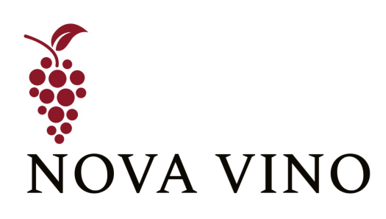Decoding Wine Labels: What Do These Terms Really Mean?
In today's wine world, terms like 'natural,' 'organic,' 'biodynamic,' and 'preservative-free' are increasingly common on wine labels. But what do these classifications actually mean, and how do they differ from each other? Let's explore each category and discover why Georgian winemaking traditions have been ahead of this movement for millennia.
Organic Wine: Certified Clean Viticulture
Organic wine is made from grapes grown without synthetic pesticides, herbicides, or fertilizers. The vineyard must be certified organic, following strict regulations that vary by country. However, organic certification focuses primarily on grape growing rather than winemaking processes.
Key characteristics:
- No synthetic chemicals in the vineyard
- Certified by official organic bodies
- May still contain sulfites (preservatives) up to regulated limits
- Winemaking techniques can still be conventional
Biodynamic Wine: Holistic Farming Philosophy
Biodynamic winemaking goes beyond organic, treating the vineyard as a complete ecosystem. Based on Rudolf Steiner's agricultural philosophy, biodynamic farming follows lunar cycles, uses specific preparations, and aims for complete self-sufficiency.
Key principles:
- Vineyard treated as a living organism
- Farming aligned with lunar and cosmic cycles
- Use of biodynamic preparations (like horn manure)
- Demeter certification required
- Often results in lower sulfite levels
Natural Wine: Minimal Intervention Philosophy
Natural wine represents the most hands-off approach to winemaking. While there's no official certification, natural winemakers typically use organically or biodynamically grown grapes and employ minimal intervention in the cellar.
Common practices:
- Wild yeast fermentation only
- No or minimal sulfite additions
- No fining or filtration
- No additives or processing aids
- Often cloudy or slightly fizzy
Preservative-Free Wine: Zero Sulfites Added
Preservative-free wines contain no added sulfites, though naturally occurring sulfites (produced during fermentation) may still be present in tiny amounts. These wines require careful handling and often have shorter shelf lives.
Characteristics:
- No sulfur dioxide added during winemaking
- May contain naturally occurring sulfites (under 10mg/L)
- Requires pristine fruit and careful winemaking
- Often more fragile and shorter-lived
Georgian Wine: The Original Natural Movement
Long before these modern classifications existed, Georgian winemakers were practicing what we now call natural winemaking. The traditional qvevri method embodies many principles that today's natural wine movement strives to achieve:
Ancient Natural Practices:
- Wild yeast fermentation in clay vessels
- No additives or processing aids
- Minimal intervention during winemaking
- Extended skin contact creating complex, unfiltered wines
- Sustainable farming practices passed down through generations
Many Georgian wines naturally fall into multiple categories - they're often organic (though not always certified), made with natural winemaking techniques, and frequently contain minimal or no added sulfites due to the protective environment of the qvevri.
Why Georgian Wines Lead the Way
Georgian winemakers have been creating what we now call 'natural' wines for over 8,000 years. The qvevri method naturally produces wines that are:
- Made with indigenous yeasts
- Unfiltered and unfined
- Free from modern additives
- Expressive of true terroir
- Aged in neutral clay rather than flavor-adding oak
When you choose Georgian wines, you're not just following a trend - you're connecting with humanity's oldest and most authentic winemaking traditions. These wines offer a pure expression of grape, terroir, and time-honored technique that modern natural winemakers aspire to achieve.
Whether you're seeking organic purity, biodynamic harmony, natural authenticity, or preservative-free wines, Georgian qvevri wines often deliver all of these qualities while maintaining the complexity and character that only millennia of tradition can provide.

